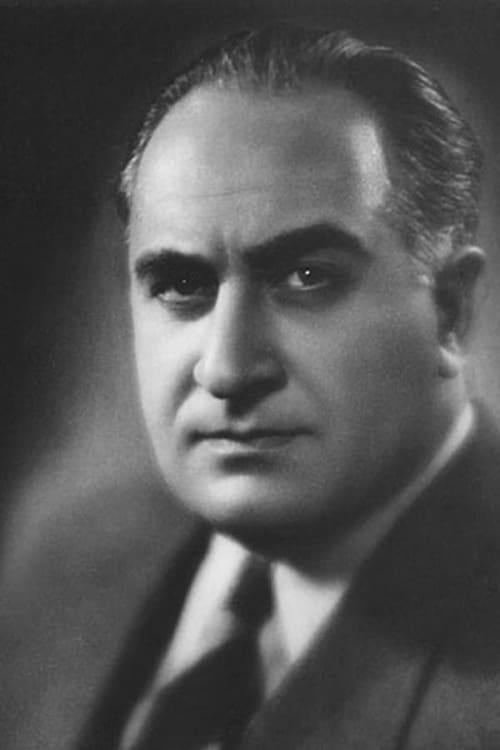
Mikhail Kalatozov
Nascimento : 1903-12-28, Tiflis, Russian Empire [now Tbilisi, Republic of Georgia]
Morte : 1973-03-27
História
Mikhail Konstantinovich Kalatozov (28 December 1903 – 27 March 1973), born Mikheil Kalatozishvili, was a Soviet film director of Georgian origin who contributed to both Georgian and Russian cinema. He is most well known for his films The Cranes Are Flying and Soy Cuba. In 1969, he received the People's Artist of the USSR accolade. His film The Cranes Are Flying won the Palme d'Or at the 1958 Cannes Film Festival. Kalatozov studied economics and changed many professions before starting his film career as an actor and later — as a cinematographer. He directed several documentary films, including Their Kingdom (with Nutsa Gogoberidze, the first Georgian female film director)[2] and Salt for Svanetia (1930).
In 1933 he enrolled to the Russian State Institute of Performing Arts. In 1936 he headed the Kartuli Pilmi film studio, then he was suggested a place at the USSR State Committee for Cinematography. In 1939 he moved to Leningrad to work at the Lenfilm studio as a film director. During World War II he directed several propaganda films and worked as a cultural attaché at the Soviet embassy in the United States.

Contemporary film critics regard the epic film I Am Cuba as a modern masterpiece. The 1964 Cuban/Soviet coproduction marked a watershed moment of cultural collaboration between two nations. Yet the film never found a mass audience, languishing for decades until its reintroduction as a "classic" in the 1990s. Vicente Ferraz explores the strange history of this cinematic tour de force, and the deeper meaning for those who participated in its creation.
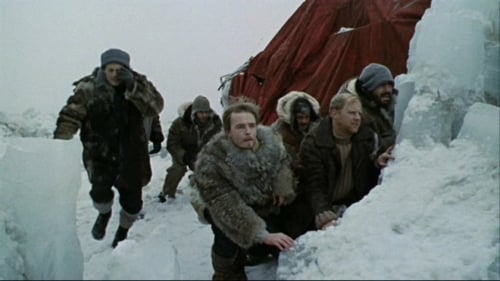
Additional Writing
Dilacerado por culpa pessoal o general italiano Umberto Nobile relembra sua fracassada expedição ao Ártico, em 1928, a bordo do avião Itália, do acidente e dos esforços de resgate subsequentes. Os 'fantasmas' de pessoas envolvidas nos eventos aparecem em suas memórias para ajudá-lo a determinar sua culpa no caso. As reminiscências são misturadas com a ação real: o voo do 'Itália', a operação de resgate aéreo do aeródromo de Kings Bay e a expedição do quebra-gelo 'Krassin'. (e 10 - Estimado 10 Anos)

Director
Dilacerado por culpa pessoal o general italiano Umberto Nobile relembra sua fracassada expedição ao Ártico, em 1928, a bordo do avião Itália, do acidente e dos esforços de resgate subsequentes. Os 'fantasmas' de pessoas envolvidas nos eventos aparecem em suas memórias para ajudá-lo a determinar sua culpa no caso. As reminiscências são misturadas com a ação real: o voo do 'Itália', a operação de resgate aéreo do aeródromo de Kings Bay e a expedição do quebra-gelo 'Krassin'. (e 10 - Estimado 10 Anos)
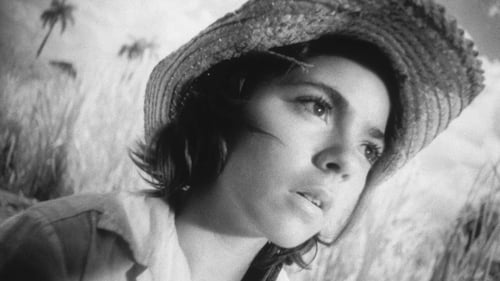
Director
Quatro histórias independentes traçam um painel de Cuba entre a derrubada do regime de Batista e a revolução comunista. Em Havana, Maria envergonha-se quando o homem de quem gosta descobre como ela ganha a vida. Pedro, um camponês idoso, descobre que a terra que cultiva foi vendida a uma empresa. Um universitário vê seus amigos serem atacados pela polícia quando distribuíam panfletos a favor de Fidel Castro. Por fim, uma família de camponeses é ameaçada pelas forças de Batista.
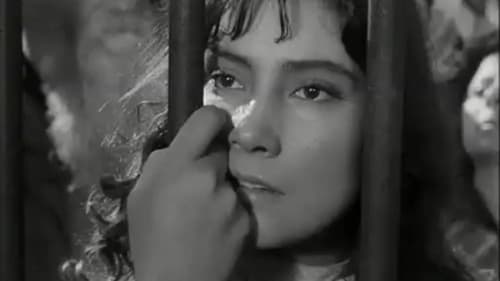
Director
Quatro geologistas estão em uma expedição em busca de diamentes na Sibéria. Após um longo período e uma jornada cansativa eles conseguem a sorte grande e colocam no mapa uma mina de diamantes. O mapa deve ser devolvido a Moscou, na Rússia, mas no dia em que deveriam partir de volta para casa um incêndio acontece na floresta. O incidente acab causando estragos e os geólogos ficam presos na floresta.
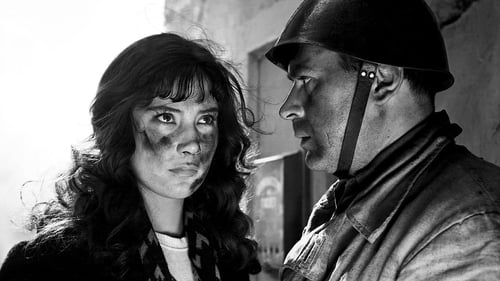
Producer
Veronica e Boris estão andando nas ruas de Moscou e se amam. Veronica está rindo, porque eles são felizes juntos nesta manhã. Eles veem alguns guindastes no céu. Ao chegar à casa de Veronica eles falam sobre um encontro na margem do rio. E a 2ª Guerra Mundial começa em Moscou. Boris trabalha em uma fábrica e ele não tem tempo para falar com Verônica. Ele vai para a guerra sem se despedir de Veronica.

Director
Veronica e Boris estão andando nas ruas de Moscou e se amam. Veronica está rindo, porque eles são felizes juntos nesta manhã. Eles veem alguns guindastes no céu. Ao chegar à casa de Veronica eles falam sobre um encontro na margem do rio. E a 2ª Guerra Mundial começa em Moscou. Boris trabalha em uma fábrica e ele não tem tempo para falar com Verônica. Ele vai para a guerra sem se despedir de Veronica.

Director
About the first years of the formation of Soviet power, about the life and work of Feliks Dzerzhinsky in 1918-1925. The film covers the most important episodes of his biography. In July 1918, as a result of a revolt of the Left Socialist Revolutionaries, the German ambassador Mirbach was killed. Feliks Dzerzhinsky alone goes to the headquarters of the Left Socialist Revolutionaries and Anarchists, he manages to persuade ordinary soldiers and sailors, participants in the rebellion, who are now cracking down on their leaders. In 1921, Dzerzhinsky was aimed at combating homelessness, as a result of which, by 1925, former homeless children, having completed their studies, were sent to the construction of Yugostal, the largest industrial plant in Ukraine.

Director
In one of the steppe regions of Kazakhstan arrives on Komsomol youth squad. Severe frosts, spring mud flows, exhausting work than their specialty - the development of virgin land does not come easy. But the young are young - they work, enjoy life, fall in love. In the center of the story - the touching romance secretary of the Komsomol organization and tractor driver Anne.

Director
Story about 3 childhood friends who found each other later in life and decided to rafting on one of the Moscovian rivers.

Director
In an Eastern European country, a strong political struggle breaks out over the possibility of accepting aid from the Marshall Plan or signing a cooperation treaty with the Soviet Union.

Director
A variety of Russian stars are presented in a revue that includes many traditional songs and dances

Screenplay
The autumn of 1941. Leningrad is besieged by the Nazis. A new model of tank is being developed at a large defense plant. Built in the shortest possible time combat vehicles are tested directly on battlefields, fighting with fascists in the outskirts of the city. The first feature film about the heroic everyday life of city defenders was shot directly in assembly shops of plants and in the streets of Leningrad when the city was fighting against the enemy

Director
The autumn of 1941. Leningrad is besieged by the Nazis. A new model of tank is being developed at a large defense plant. Built in the shortest possible time combat vehicles are tested directly on battlefields, fighting with fascists in the outskirts of the city. The first feature film about the heroic everyday life of city defenders was shot directly in assembly shops of plants and in the streets of Leningrad when the city was fighting against the enemy

The film is based on the biography of Valeri Chkalov (1904 - 1938), a Russian pilot, who set several long distance flight records. Chkalov and his co-pilots Baidukov and Belyakov together had accomplished several non-stop long-distance flights. In June of 1937 Chkalov set the world record, covering 12000 kilometers in 63 hours of non-stop flight from Moscow to Vancouver, Washington, flying over the North Pole.

Director
The film is based on the biography of Valeri Chkalov (1904 - 1938), a Russian pilot, who set several long distance flight records. Chkalov and his co-pilots Baidukov and Belyakov together had accomplished several non-stop long-distance flights. In June of 1937 Chkalov set the world record, covering 12000 kilometers in 63 hours of non-stop flight from Moscow to Vancouver, Washington, flying over the North Pole.

Director
The airborne trickster - Aleksei Tomylin, civil aviation pilot - one day decides to stop tempting fate and only flies directly. The airport where Tomylin works is near the border with Afghanistan. One day he receives the task to fly across the border and transfer a package with an order to catch a notorious saboteur. On his way back, Tomylin crash lands near an abandoned settlement - and soon finds himself taken hostage by a gang. The hero pretends to agree to take the saboteur abroad, and relies only on his expertise as a flying ace.....

Director
Banned in the Soviet Union for its "negative" content and never released, Kalatozov was forced to retreat from filmmaking for seven years because of this film. The film sets out to illustrate the old adage, "For want of a nail, the battle was lost," showing how the inferior quality of something so trivial as a nail in a soldier's boot leads inexorably to the capture of an armored train. Kalatozov had intended to demonstrate the crucial and universal importance of efficiency in Soviet industry, but the government decided that his fable gave a negative impression of the Red Army's capabilities.

Camera Operator
An ethnographic treasure that documents with visual bravado the harsh conditions of life in the isolated mountain village of Ushkul.

Director of Photography
An ethnographic treasure that documents with visual bravado the harsh conditions of life in the isolated mountain village of Ushkul.

Screenplay
An ethnographic treasure that documents with visual bravado the harsh conditions of life in the isolated mountain village of Ushkul.

Director
An ethnographic treasure that documents with visual bravado the harsh conditions of life in the isolated mountain village of Ushkul.

Director
Film directed by Mikhail Kalatozov

Director
The documentary Their Kingdom, co-directed in 1928 by Nutsa Gogoberidze and Mikhail Kalatozishvili (Kalatozov) for Soviet Georgia’s Cinema Trust, was considered lost until 2008, when there appeared a possibility that this important film – Georgia’s first documentary feature and Kalatozov’s directorial debut – had not disappeared irretrievably.

Cinematography
Romeo and Juliet a-la Romani style.

Writer
Romeo and Juliet a-la Romani style.

Cinematography
Film directed by Mikhail Kalatozov

Director
Film directed by Mikhail Kalatozov

Camera Operator
A pretty young Azeri woman Giuli and Georgian guy Mitro are very in love. But because of traditions she can not marry him. Young people run away to get happy together, but without success.

Screenplay
A pretty young Azeri woman Giuli and Georgian guy Mitro are very in love. But because of traditions she can not marry him. Young people run away to get happy together, but without success.

Schoolteacher Spiridon and his pretty wife Despine are taking a room in a small inn. Tariel Mklavadze, a local nobleman and debauchee falls for a beauty of Despine. He and his friends terrify young couple trying to get Despine.

Director
Film directed by Mikhail Kalatozov

Director
Film directed by Mikhail Kalatozov

Director
Film directed by Mikhail Kalatozov










